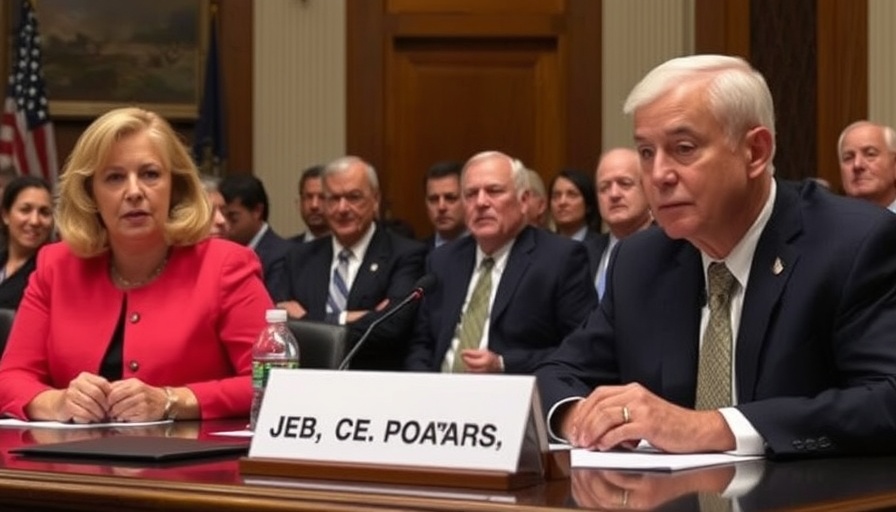
Understanding FEMA's Role in Construction Recovery
The Federal Emergency Management Agency (FEMA) is pivotal in disaster recovery, providing essential funding and resources to ensure timely reconstruction efforts. However, the agency is facing backlash over its inefficiencies and delays in resource allocation. This discontent was articulated in recent congressional meetings, where lawmakers voiced concerns about FEMA's diminishing credibility.
Current Controversies: What’s Fueling the Discontent?
Part of the rancor stems from recent natural disasters that have left communities in a lurch. Reports of missed deadlines, lost paperwork, and red tape have emerged, prompting not just frustration among those affected but also demands for legislative reform. Additionally, tension has been stirred by accusations of partisan politics stifling swift resolutions. These issues suggest a call for a bipartisan approach that addresses systemic problems while facilitating support for those in dire need.
Implications for Construction and Recovery
As leaders advocate for a bipartisan approach, the implications on the construction industry cannot be overlooked. Efficiency in recovery processes dictates the speed at which local economies can rebound. Slow FEMA responses lead to delayed construction projects, meaning that affected areas remain stagnant even as funds are allocated but not distributed. A streamlined process would significantly benefit construction contractors and ultimately the communities they serve.
Pathways to Bipartisanship: Bridging the Divide
The discussions around FEMA are emblematic of a larger need for collaboration across party lines. Lawmakers are exploring solutions that could revolutionize how FEMA operates, including technology integration to improve accountability and data-sharing practices. By adopting smarter procurement methods, not only could FEMA improve its response times, but it could also bolster trust amongst constituents—a crucial step in rebuilding post-disaster.
Conclusion: The Future Depends on Action
The plight of those affected by natural disasters is intertwined with how efficiently FEMA can respond to their needs. Collaborative efforts in Congress could lead to significant improvements in FEMA's operations, which would have a profound impact on the construction industry at large. Clients of commercial construction companies should stay informed about ongoing legislative changes, as these decisions will determine future project efficiency, cost management, and quality outcomes. Let’s advocate for meaningful reforms that ensure communities receive the aid they deserve, unimpeded by bureaucracy.
 Add Row
Add Row  Add
Add 




 Add Row
Add Row  Add
Add 

Write A Comment